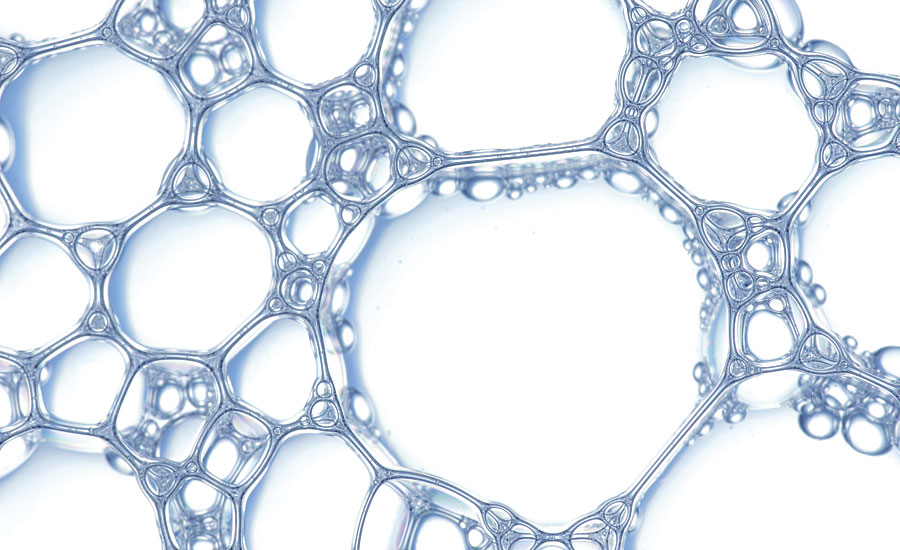Effective Use of Defoamers in the Pharmaceutical Manufacturing Process
Effective Use of Defoamers in the Pharmaceutical Manufacturing Process
Blog Article
The Function of Defoamers in Enhancing Item Top Quality and Efficiency
Defoamers offer as important additives that alleviate this issue, making certain smoother manufacturing workflows while improving the aesthetic and useful attributes of the final products. The selection of the proper defoamer can be vital to achieving ideal results, increasing important inquiries about solution compatibility and performance metrics that merit more expedition.
Comprehending Defoamers
Understanding the function of defoamers is crucial for maintaining item top quality throughout various sectors. Defoamers are chemical ingredients designed to protect against the formation and minimize of foam in fluid systems, which can negatively impact procedures such as blending, loading, and surface stress. Frothing can lead to ineffectiveness, item defects, and jeopardized visual allure, making defoamers an essential part in manufacturing operations.
In industrial applications, defoamers help to improve item uniformity and security. In the paint and finishings market, foam can interfere with the application procedure and the last surface. In food and drink manufacturing, excessive foam can impede bottling and packaging effectiveness. The efficient use defoamers not just ensures smoother production procedures however additionally contributes to remarkable product performance.
Additionally, the choice and formula of a defoamer should align with specific application demands, such as compatibility with various other components, effectiveness under differing temperature and pH conditions, and possible regulative constraints. Inevitably, recognizing defoamers' functions and their significance in numerous formulations is vital for enhancing manufacturing and making certain the greatest top quality final product.
Sorts Of Defoamers
Defoamers can be classified into a number of kinds based on their structure and mechanism of action. The key types consist of silicone-based, non-silicone organic, and not natural defoamers.
Silicone-based defoamers are among one of the most effective, largely as a result of their capability to spread out rapidly on the fluid surface area and disrupt foam development. Their unique chemical framework permits for premium security, making them suitable for high-temperature applications and environments with varying pH levels.
Non-silicone natural defoamers, often made up of all-natural oils or fats, are valued for their biodegradability and lower poisoning. These are commonly made use of in food and beverage applications where security and environmental effect are critical.
Not natural defoamers, that include substances like talc or calcium carbonate, act by enhancing the density of the fluid, thereby lowering foam security. They are frequently used in commercial procedures where compatibility with various other products is not a concern.
Each type of defoamer has distinct advantages and constraints, allowing for tailored solutions depending on the details foaming issues experienced in various applications. Recognizing these distinctions is important for optimizing performance and accomplishing preferred item top quality.
Applications Throughout Industries
Various markets take advantage of defoamers to boost item top quality and functional effectiveness. In the food and drink sector, defoamers are vital in procedures such as brewing and dairy manufacturing to avoid foam development, which can lead to ineffectiveness and product incongruity. By managing foam, makers can make certain far better yield and look at here a more consistent product.
In the pharmaceutical industry, defoamers play an essential function in the solution of liquid drugs, where too much foam can hamper mixing and precise application. Their usage aids preserve the honesty of the solutions and facilitates smoother manufacturing procedures.
The paint and finishes sector also relies upon defoamers to improve the efficiency of products throughout application. By reducing foam, these ingredients guarantee a smoother surface and enhance the aesthetic top qualities of the final item.

Benefits of Making Use Of Defoamers
While the application of defoamers differs across industries, their advantages constantly enhance item high quality and process efficiency. One considerable advantage is the decrease of foam formation throughout manufacturing procedures, which can otherwise bring about production hold-ups and incongruities in item top quality. By lessening foam, defoamers enable a smoother circulation of products, assisting in a lot more effective operations and decreasing the likelihood of equipment malfunctions.
In addition, the use of defoamers can enhance the look and structure of last products. In markets such as coverings, paints, and food processing, extreme foam can endanger the visual appearances and total high quality, while the ideal defoamer application ensures an uniform surface and preferable qualities. Moreover, defoamers can add to set you back savings by reducing waste throughout manufacturing and maximizing the use of basic materials (defoamers).

Selecting the Right Defoamer
Choosing the appropriate defoamer is important for enhancing manufacturing procedures and ensuring product quality. The option of defoamer affects not click reference just the performance of foam control but likewise the total efficiency characteristics of the end product. Variables to think about consist of the kind of application, the chemistry of the formula, and the ecological conditions under which the item will certainly be made use of.
Various sectors may call for details defoamer kinds, such as silicone-based, natural, or polymeric defoamers. Recognizing the compatibility of the defoamer with the main active ingredients is necessary to prevent unfavorable reactions that can compromise item integrity. In addition, the defoamer's efficiency in various temperatures and pH degrees need to be examined to make certain regular efficiency.
Checking the defoamer in small applications can give important understandings right into its performance and viability. Consideration of regulative conformity, especially in food, drugs, and cosmetics, Continue is paramount in choosing a defoamer. Eventually, an extensive analysis of these elements will bring about the selection of a defoamer that not just regulates foam effectively however additionally improves the top quality and efficiency of the end product.
Verdict

In conclusion, defoamers are essential additives that significantly improve product high quality and performance across different sectors. By effectively decreasing foam formation, these agents not just enhance operational efficiency but also add to the aesthetic and functional integrity of products. The critical option and application of defoamers bring about set you back financial savings, maximized resource use, and boosted client satisfaction. Overall, the importance of defoamers in industrial procedures can not be overemphasized, as they play a crucial function in accomplishing top quality and consistent end results.
Lathering can lead to inefficiencies, item problems, and endangered visual appeal, making defoamers a vital component in producing operations.

Report this page